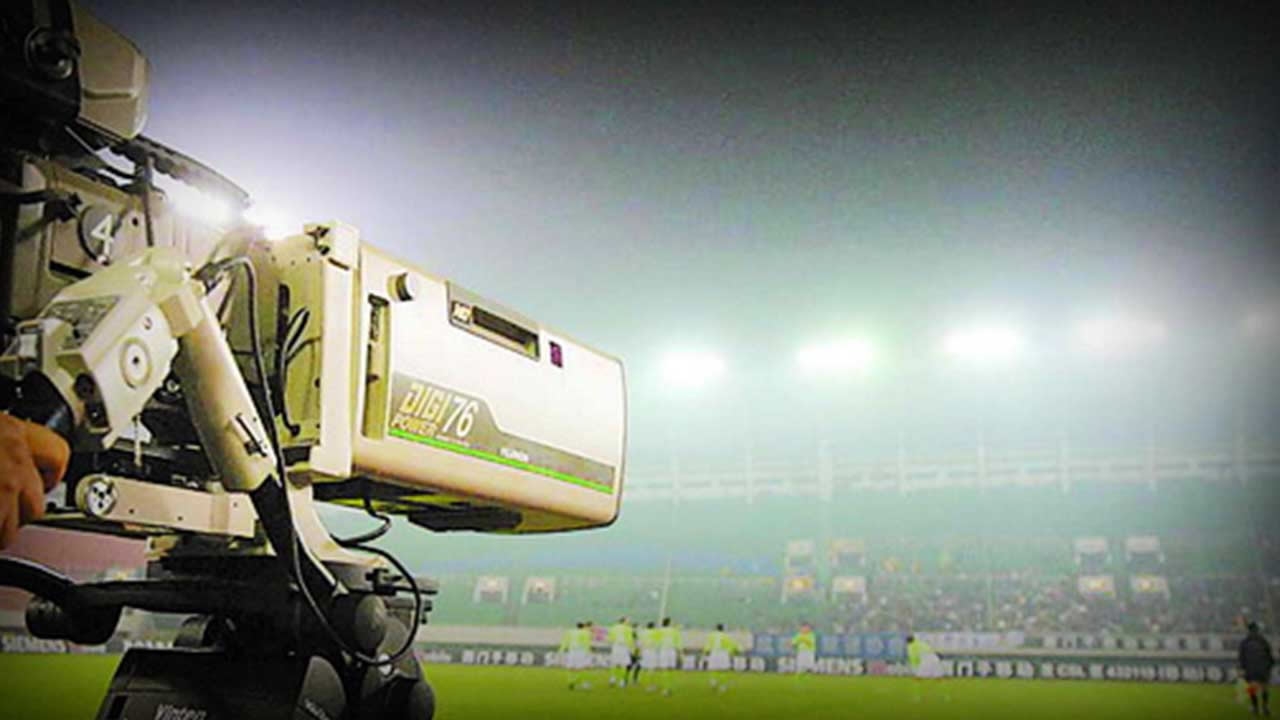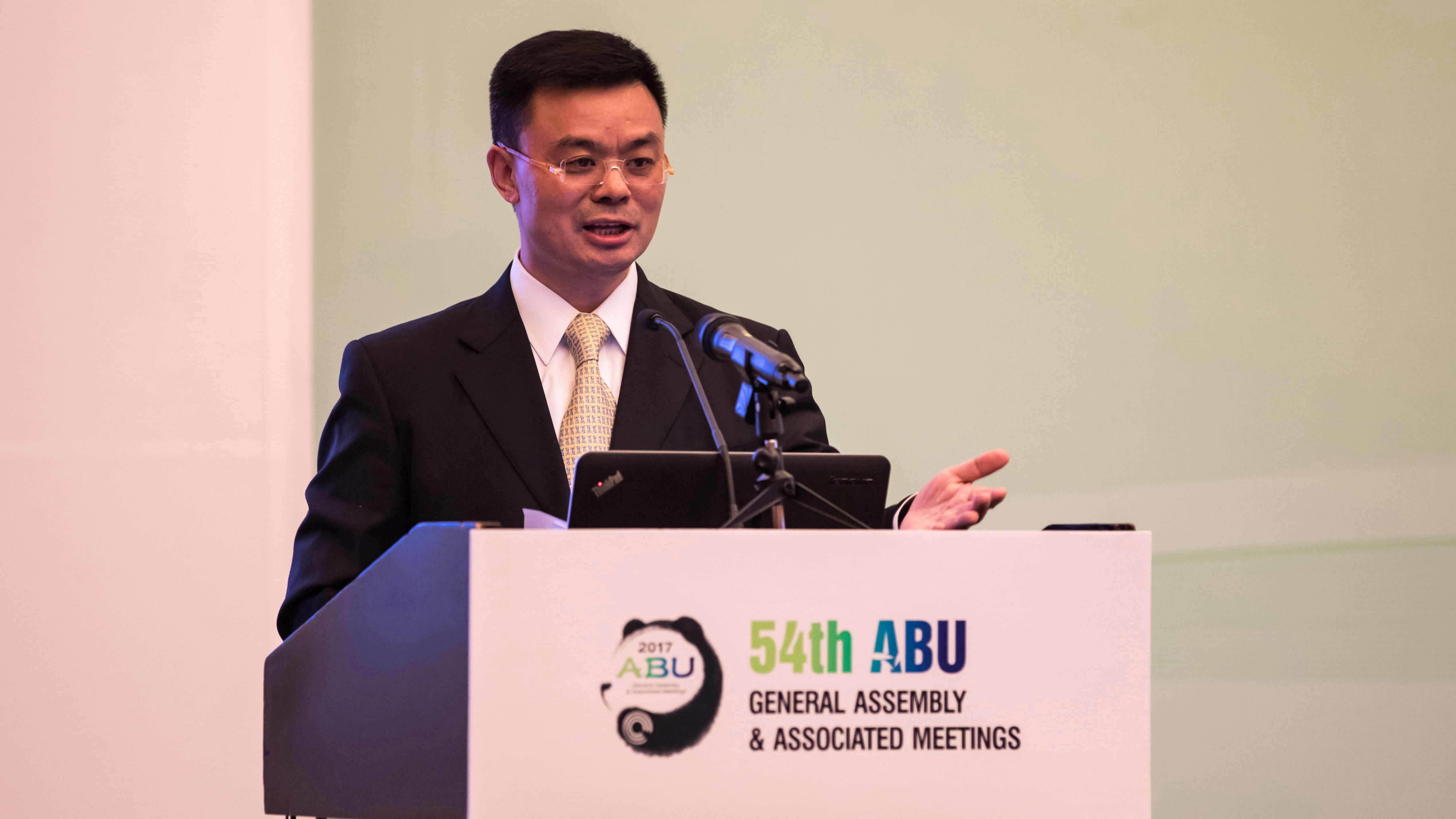
Sports
22:58, 31-Oct-2017
Game On: Asian sports broadcasters discuss rising rights fees
By Tao Yuan

Last year, Chinese people spent an average 1,800 hours watching sports on TV, a 17.7% increase from 2015. Impressive, as online streaming and video on demand sites are increasingly keeping the audience away from their TV sets.
Industry players argue that live sports is now the most valuable content on TV. They are determined to keep it that way, but increasingly, broadcasters are writing bigger and bigger checks to carry the events on their channels.
“Soaring broadcast right fee for sports and sporting events still remain a daunting challenge,” says Jiang Heping, chairman of the Sports Group of the Asia-Pacific Broadcasting Union (ABU).

Sports Group of Asia-Pacific Broadcasting Union gathers in Chengdu . / CGTN Photo
Sports Group of Asia-Pacific Broadcasting Union gathers in Chengdu . / CGTN Photo
The body is gathering in China’s southwestern city of Chengdu to discuss the challenges facing the industry. Jiang is also the controller of China Global Television Network, and former controller of China Central Television Sports.
“And with new media and mobile, the environment surrounding broadcasting itself, especially sports, is changing drastically. The onus is on us to seek sustainable and affordable solutions and alternatives,” says Jiang.
China’s domestic sports market could be worth five trillion RMB (740 billion US dollars) by 2025. Sports-related sectors are fast becoming a new battleground for big capital. Spending on sports and leisure activities will represent over 2.5% of national disposable income. 435 million citizens are likely to participate in sporting activities regularly.

CGTN controller Jiang Heping address challenges facing sports television./ CGTN Photo
CGTN controller Jiang Heping address challenges facing sports television./ CGTN Photo
For TV industry, key to a share of that profit is the right to broadcast matches from major leagues. But the rising cost is prompting more broadcasters globally to opt to reduce sports coverage. The BBC announced in 2015 that it would cut 35 million pounds from its sports rights budget, with some events to be dropped from free-to-air television in Britain. ABU members are fearing that’s going to become the fate for sports broadcasters globally.
“I was informed that the rights of the Asia Games had some difficulties,” says Fang Gang, deputy controller of CCTV Sports, acknowledging the challenges facing his industry.
Online platforms have been quick to grab a share of the market. A company source of PPTV, one of China’s biggest video streaming websites, told Reuters news agency that the platform paid 290 million US dollars in 2015 for a five-year La Liga deal, and this year agreed to pay 700 million US dollars for three years of English Premier League (EPL) rights from 2019, and 250 million US dollars for five years of Germany’s Bundesliga.
Such circumstances call for reviewing of our strategies, embracing digital media and innovating production and marketing mechanism,” says Jiang.
The ABU is hoping to negotiate coverage rights to major sports events for its members collectively. Members and partners are hoping this could mean more games on air, at a cheaper cost for the audience.
“We can’t afford the cost (of broadcast rights fee),” says Zulkifli Muchtar, sports producer at Televisi Republik Indonesia, adding that he hopes ABU can help its member stations acquire rights especially to the Tokyo Olympics in 2022.
“Sharing is very important,” says Lise Cosimi, chief external relations of France’s HOST Broadcast Services, a partner of ABU. “Sharing is the next generation of what’s going to happen for sports if we all want to deliver something for our audiences.”
1520km

SITEMAP
Copyright © 2018 CGTN. Beijing ICP prepared NO.16065310-3
Copyright © 2018 CGTN. Beijing ICP prepared NO.16065310-3